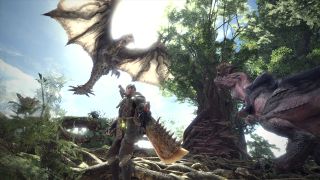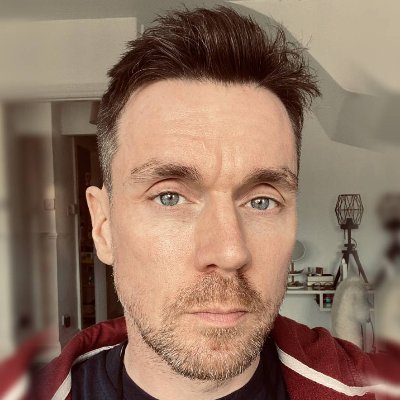Monster Hunter World producer Ryozo Tsujimoto on bringing the game back to console, pleasing fans and not taking the Resi 7 reboot route
We talk to the man behind Monster Hunter's PS4/Xbox One return
After a long time away we finally have an all new Monster Hunter game in the shape of Monster Hunter World. It’s the first time the series has been on a main console for a while, and I spoke to producer Ryozo Tsujimoto about that, what it’s like to update such a traditional series, and how to keep a zealous fan base happy.
Bringing Monster Hunter back to console after a time away really opens up the audience. Has that brought any changes as a result?
We’ve really taken the chance to step back and look at what Monster Hunter is. There might be a lot of people who are going to play Monster Hunter for the first time and we’re aware we want to grow the audience. That’s not to say we just take everything new people want and implement it. Veteran Monster Hunter fans can be reassured that we don’t want to change the core action, we want you to get to that gameplay - we don’t want to make it easier, we want to make it easier to get to it. It’s a chance for us to step back and look at all the little quirks and curiosities about the Monster Hunter design that might have been putting off the new players, and streamline that so they can really get to the good stuff quickly.

Monster Hunter World is big, very alive and... OMG my Palico has a rubber ring!
This is the most powerful console the series has been on for a while. How have you taken advantage of that?
Well we’ve taken the concept of wanting to make it feel like you’re delving into this deep ecosystem in each map. So it’s not just a stage, it’s a living breathing world - every plant, every creature, every monster - they all interact with each other and they all have their own behaviours and desires. That plays into one of the key aspects of the ecosystem - that it’s not just something you’re passively reacting to, you can also use the ecosystem as part of the hunt. Where before you might have to put a trap item out to trap a monster, there are now parts of the environment you can use. Where you might have had to use items for effects like poison or gas, now there might be creatures or things in the environment you can use. It’s about the depth of each map, how many deep details there are and how to make a really rich environment to hunt in.
Has PS4/Xbox One development enabled you to do anything you couldn’t before?
To an extent. But it might be more accurate to say we built up things over the series’ [entire] development. For example, the AI: you have intelligent monster behaviour, how they behave in packs, how they react to the player - and now we’re at a place where you can combine it and take it to the next level. Now we can have monsters that interact with, and fight, each other. It isn’t so much that we couldn’t do what we wanted from the start, as much as we’ve built towards what we wanted to do, and we’ve done as much as we can with each generation, but now we’ve got this great leap that lets us take what we’ve built with the series to the next level.

Resident Evil 7 has had a very well received overhaul and reboot, was there ever discussion about something similar for Monster Hunter World?
Well, we want players to be surprised and delighted with Monster Hunter World but we don’t want to substantially revise core gameplay just to have something new to show. It’s a co-op action game and that’s what makes it what it is. We don’t want to introduce so many new features and ways of playing that [they] interfere, or cause disharmony between, the idea of the four player group going out and hunting a monster together. Which isn’t to say we haven’t introduced new features and things, we just try and make sure that it's not for its own sake, just to have something new to say. We want to make sure the game is always Monster Hunter at its heart.
The Monster Hunter series has a pretty hardcore fan base. Is it tough making a game for people who might think they know it better than you do?
So there are some things we’ve changed, like the maps or the way the monsters behave. When we first announced these there were definitely some veteran Monster Hunters who were like ‘it’s not Monster Hunter anymore, it’s not my Monster Hunter any more’. I don’t think that knowing potential reactions to changes, stops us from making changes. It just makes us feel it’s more important than ever to make sure [the community] understands the reason for the changes.
Sign up to the GamesRadar+ Newsletter
Weekly digests, tales from the communities you love, and more

I'm GamesRadar's Managing Editor for guides, which means I run GamesRadar's guides and tips content. I also write reviews, previews and features, largely about horror, action adventure, FPS and open world games. I previously worked on Kotaku, and the Official PlayStation Magazine and website.

Helldivers 2's PSN mandate won't stop players in unsupported regions from playing the game, while devs look "for better options"

Manor Lords player complains about undead animals taking up space, dev pops up to say "I fixed it already – will be added to the next patch"

Lego Boarding the Tantive IV review: "The perfect mix"
Most Popular


